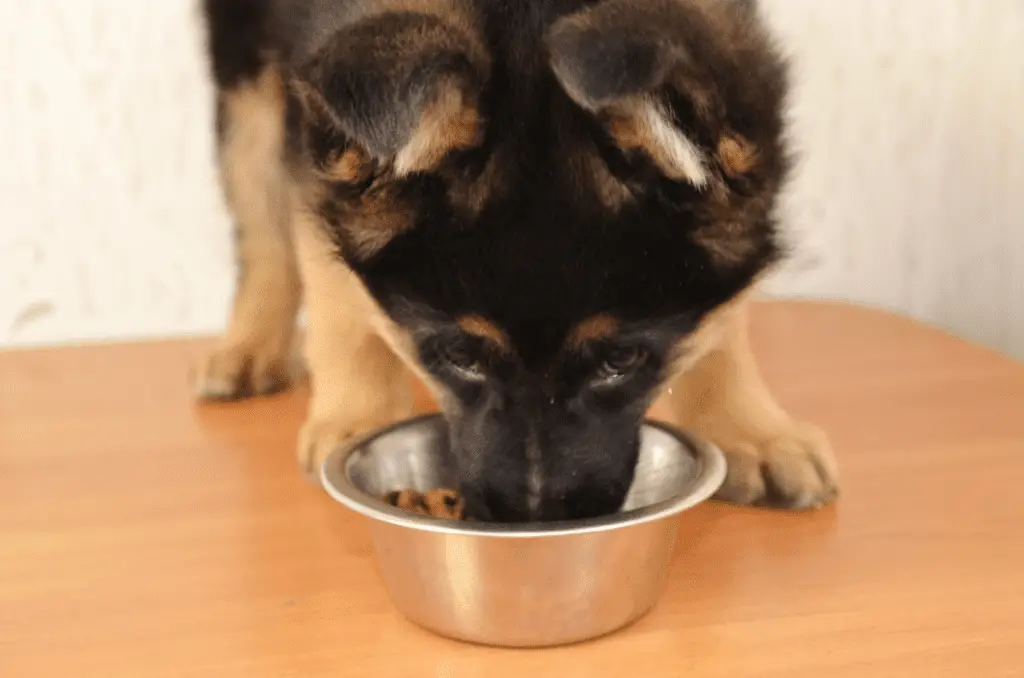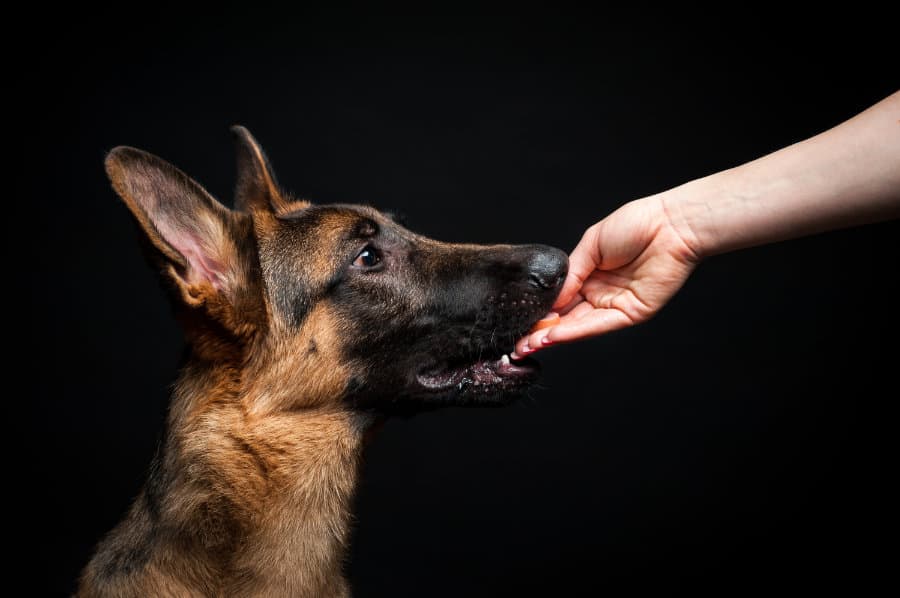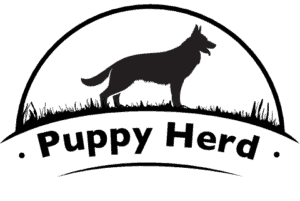A German Shepherd is a very active breed that needs a lot of food. However, sometimes, they may not be interested in eating as much or can even stop eating altogether, causing the owner to worry and wonder if there’s a serious issue.
The amount of time a dog can go without eating can vary greatly depending on their age, health, and size. In general, most healthy adult dogs can survive for about five days without food, assuming they’re still drinking water.
However, just because a dog can survive this long without food doesn’t mean it should. If your German Shepherd hasn’t eaten for more than 24 hours, you should consider this as a potential cause for concern, particularly if it’s combined with other symptoms such as lethargy, vomiting, or changes in behavior.
Puppies, older dogs, and dogs with certain health conditions can be more susceptible to problems from not eating. Even a single missed meal can be a problem for these dogs.
This article discusses how long a German Shepherd can live without food, why your dog may not be eating, and how you can make it eat again.

How Many Days Can A German Shepherd Survive Without Eating?
A German Shepherd can generally stay healthy and intact for about 5 days without food. Some can go even longer, being able to fast up to a week or more without any health complications.
Do keep in mind that seniors, pups, or diseased dogs will need food more often. Furthermore, even if your dog isn’t eating, it will need plenty of water.
How Long Can A German Shepherd Puppy Go Without Food?
Puppies, unlike adult dogs, don’t have significant fat reserves, meaning that they aren’t able to store the energy from the food for long. Hence, they can’t go more than 12 hours without eating.
Why Isn’t My German Shepherd Eating
A loss of appetite in a German Shepherd can be a worrying sign for any pet owner. When your usually hearty eater starts skipping meals or shows a decreased interest in food, it’s natural to wonder why. Your German Shepherd may not be eating for several reasons:
Rest
Sometimes, a German Shepherd can stop eating just to give its digestive system a break.
These intelligent animals have more awareness about their food habits and nutrient needs than we think. Notice how a dog can sometimes chomp on grass when it feels like it needs some extra fiber?
Indigestion
Just like humans, dogs can also have digestive problems like heartburn, gastritis, constipation, bloating, etc. All these conditions can cause pain to the dog when eating, so it will somehow get scared of the food.
In addition to the loss of appetite, here are other symptoms of digestive problems in dogs:
- Diarrhea
- Vomiting or regurgitation of food
- Constipation and difficulty passing stool
- Shocks
- Excessive drooling
- Dehydration
- Change in the color, frequency, and consistency of feces
- Excessive passing of gas
- Licking feet constantly
Illnesses
Many diseases can cause loss of appetite in German Shepherds. They can be something simple like the common cold or the tummy ache, or in a worst-case scenario, even life-threatening like parvovirus.
Mental Stress
Especially playful dogs like German Shepherds are prone to mental issues like depression and anxiety. When they’re sad, they’ll want to eat less.
Here are the signs of depression to look out for in a German Shepherd:
- Unexplained lethargy and being less active
- Becoming needy and trying to draw attention from the owner more often
- Not willing to go out to play or do the things it normally likes
- Aggression and barking more than before
- Not willing to be touched and running away from people or other pets
- Panicking when meeting new people or animals
- Tucking tail between legs
Picky Eating Habits
Sometimes, your dog may not eat to convey that it appreciates a change in the diet.
If you’ve been feeding it the same brand of kibbles for years or spoiling it with various treats lately, your dog won’t be as excited when it gets to taste the same boring food again and again.
Especially if your dog isn’t eating its lunch or dinner but is still not running away from treats, you can definitely confirm what’s causing the tantrum.
Dental Problems
Dental problems can hurt a dog’s teeth while eating, so it will start staying away from food as much as possible.
German Shepherds are generally susceptible to oral issues, including plaque, tartar, gingivitis, cavities, periodontal disease, root abscess, loss of teeth, etc.
Now, the symptoms of dental issues depend on each individual disease, but most of them are more likely to include:
- Bad breath
- Excessive drooling
- Reluctancy to chew food or toys
- Unexplained weight loss
- Tooth discoloration and visible tartar
- Swollen and bleeding gums
- Nose discharge
- Facial swelling
- Unwillingness to eat hard treats
Lack of Exercise
Lack of exercise mostly accompanies some kind of health issue or aging. As your German Shepherd becomes less active, it will need fewer calories.
As time passes, you will also notice that your pet will actually gain weight even if it doesn’t eat much.

How Can I Make My German Shepherd Eat Again?
Whether the cause is environmental, dietary, or health-related, understanding how to effectively respond to this issue is key to restoring your dog’s normal eating habits and ensuring their long-term health and wellbeing. Here are the things you can do to get your pet to like food again:
Wait for A While
If the dog is simply fasting, you should give it some time. It should get back to eating normally after 2 to 3 days.
Ensure Proper Feeding Habits
Proper feeding habits will solve more than half of the issues that can cause a dog to lose its appetite. Here are the things you should always remember when it comes to feeding your pet:
- Always feed on a regular schedule.
- A couple of treats are okay but don’t overdo it. Treats can cause your dog to be less hungry during dinner.
- Only prioritize dog food. Don’t feed scraps.
- Don’t overfeed your dog, as it will make it obese and less active. German Shepherds should get between 1200 to 2100 calories per day, depending on their activity levels.
Make Food More Palatable
In case your dog is bored with the same food, you should try buying a different brand of kibbles. But make sure that it gets an optimum amount of nutrients.
According to a study, a dog’s diet should have 50% carbs (of which 2.5%-4.5% should be fiber). Furthermore, 5.5% of the diet should have fat, and 10% (preferably 20%) should come from protein.
If it still doesn’t eat, try heating the food. Warm food smells better than cold food, which can make it more appetizing for a dog, especially given that the animal has a very strong nose.
Prepare Soft Food
If you find dental issues, first, you should take your German Shepherd to the vet. After coming back, you’ll need to prepare things that are easy to eat and chew. This includes:
- Soup
- Boiled and shredded chicken
- Bone broth
- Boiled Rice, etc.
Spend More Time With Your Dog
While dogs can get depressed, it doesn’t take much to take them out of their mental condition.
All you need to do is spend more time with it, take it out for walks, and help it stick to a routine for its daily activities. Also, reward it with treats for the good things it does.
Conclusion
If your German Shepherd isn’t eating, it’s important to try to find out why. Changes in diet, stress, or illness can all cause a dog to lose their appetite. If you’re unsure why your dog isn’t eating, or if they’re showing other signs of illness, you should contact your veterinarian.
Always remember, when it comes to your pet’s health, it’s better to be safe than sorry. Regular check-ups with a vet can ensure your German Shepherd stays healthy and happy.
